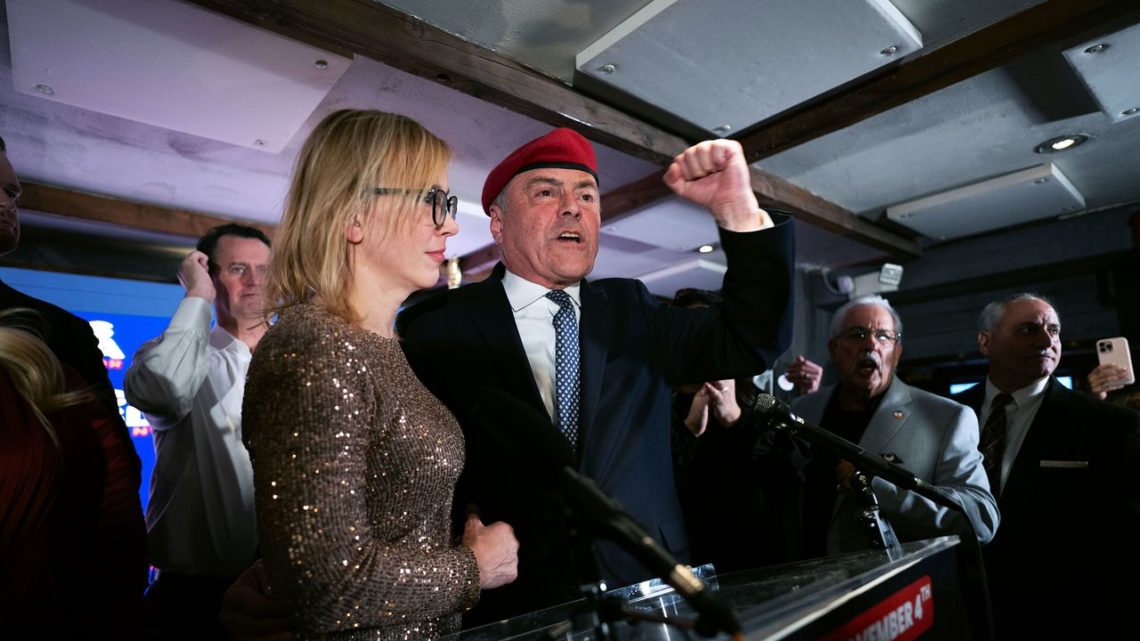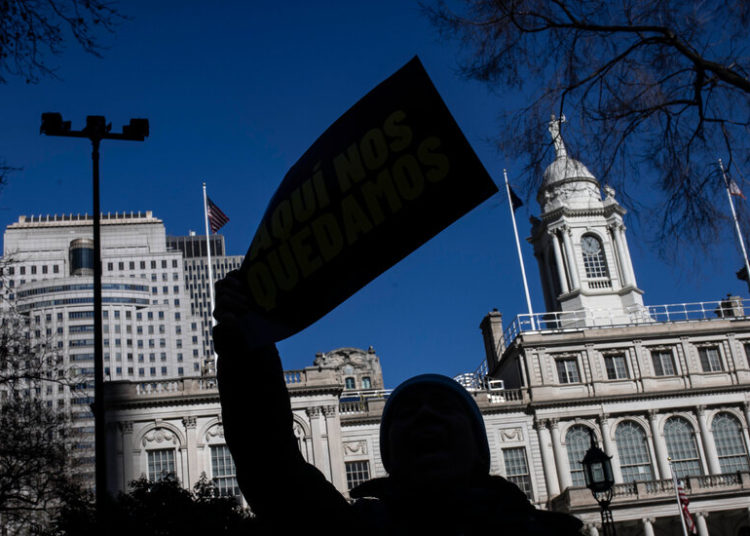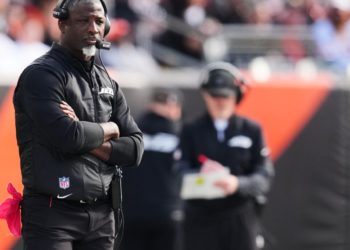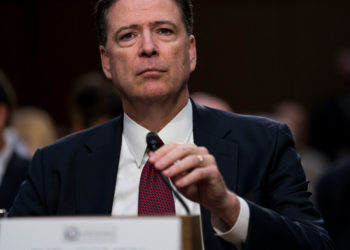It’s 9:30 p.m. on election night on the Upper West Side of Manhattan, and Curtis Sliwa is telling his crowd of supporters that his campaign spoke for animal lovers and the emotionally disturbed.
Polls in New York’s mayoral race had closed a half hour prior, with Zohran Mamdani quickly declared the victor, and while the Republican candidate and longtime city fixture only offered a passing concession—“so we have a mayor-elect”—he took the broader opportunity to reflect on his idiosyncratic presence on the edges of public life for several decades now. In the closing days of the campaign, Donald Trump had come out in support of Andrew Cuomo, who ran as an independent, in an effort to head off Mamdani’s momentum, and claimed that Sliwa, whose calling cards include his red beret, a much-referenced 1992 shooting in the back of a yellow cab, and the animals he and his wife keep in their studio apartment, “wants cats to be in Gracie Mansion.”
“Some of the most powerful people in the world,” Sliwa said, “made fun of Nancy and what we do to care for animals, to care for people.”
“You’re still our mayor!” a supporter in Gucci sneakers and electric blue color contact lenses shouted.
The audience on hand at Arte Cafe, a neighborhood Italian standby, amounted to a fittingly unpredictable mélange of Sliwa loyalists in streetwear, suits and fedoras, and pops of red in the form of Guardian Angels berets. Former New York governor George Pataki, whom Sliwa described as a key supporter in his speech along with Rudy Giuliani, was mobbed by cameras and microphones as he tried to make his way past the bar. In a quieter back room, was Brad Solomon, a Queens native who identified himself as a poker player and sports bettor by trade. He was vaping in a God Bless America hat as he described how he came to root for Sliwa.
“We don’t want Killer Cuomo,” Solomon says. “We don’t want communists. It’s an obvious choice.” He and Sliwa were once arrested together, he says, after protesting the arrival of migrants at a mental hospital next to a Catholic school in Staten Island.
“Curtis was the only one who stood up against that,” Solomon says.
Another Sliwa supporter, Akiva Mandel, a Los Angeles-raised accountant, had a slightly uncomfortable position in the room owing to a Trump-adorned yarmulke that he bought in Israel. When asked what he made of the relationship between the president and Sliwa, Mandel, who described himself as hardcore MAGA, acknowledged that he wished it were stronger.
“But Sliwa’s a nice guy,” Mandel said, starting to brighten. “I met him. It was awesome. You can grab a beer with him, get a coffee with him, the chillest guy.”
With polls soon closing, Solomon started a “let’s go Curtis” chant that no one else seemed to pick up on. News was breaking that Democrats had won the gubernatorial races in New Jersey and Virginia; the mood was limp. But Sliwa was on his way, it became clear, and a dance circle broke out by the bar as the restaurant turned the reggaeton up. There were no Hasan Pikers in the mix, and no Emily Ratajkowksis behind the candidate, but upon his arrival, Sliwa explained that he didn’t need them. He was, in his telling, a sort of man out of time, beholden to neither “the insiders and influencers” nor “the masters of the universe.”
The billionaires tried to bribe him “as much as $10 million,” Sliwa said, repeating a recent claim of his about the pressure he faced to drop out of the race in order to boost Cuomo’s chances—and declining to specify the source of these offers.
On the strength of such larger-than-life tales, the 71-year old Republican has been rattling around the New York consciousness since the 1970s, whether by patrolling the subway, sparking conflict with the Gambino crime family as a sensationalist talk radio host, or filling the tabloid pages with his vivid love life. His second mayoral run never promised much in the way of electoral success, but as he sparred with Cuomo, Mamdani, and Eric Adams in a particularly fraught and colorful Trump-era race, it perhaps brought him to his highest cultural apex yet.
“Why should I have regrets?” Sliwa recently said on CNN when asked how he’d view Mamdani running the city “as a communist.”
“If perchance I lose on November 4th,” he said. “I will improve, not move. I was born in this city. I was almost killed in this city. I’ll die in this city. I’ll be buried in this city.”
In the mix of old and new supporters there for Sliwa on Tuesday, that steadfastness was key. Scott Grisanti, a sales executive standing off to the side of the room, said that he first met Sliwa when he was working as a stringer for the North Star Ledger in the ‘80s. “I’ve been following him since then,” Gristanti said, describing “resilience and repetition” as the secrets to Sliwa’s inimitable footprint.
Sherry Chen, a Columbia student from Shanghai, canvassed for Sliwa and stood on stage with the candidate as he addressed the party. Afterwards, push alerts declaring Mamdani’s victory were beginning to light up many phones, and Chen seemed deflated. Sliwa “supports law and order, public safety and affordability,” she said, “which are everything I care about and it’s good for the people.” After the loss, Chen added, she’d turn her attention to finishing school and plotting her future political involvement. She did not, under the circumstances, seem particularly enthused about speaking with a reporter, but just after we parted ways, she chased me down to ask an urgent question about the New York character who had captured her imagination.
“Is Curtis leaving?”
The post It’s Never Quite Curtis Sliwa’s Last Hurrah appeared first on Vanity Fair.




